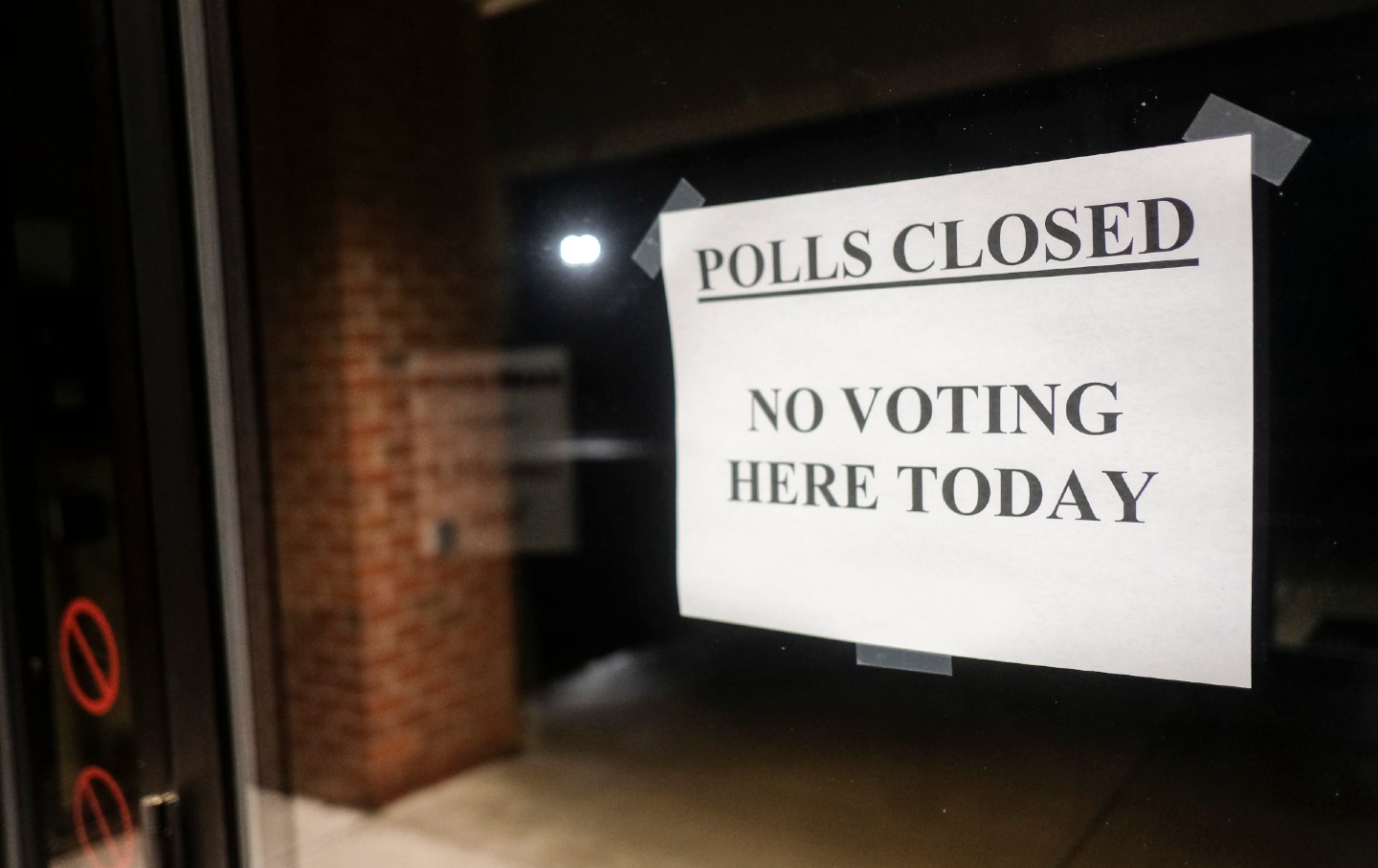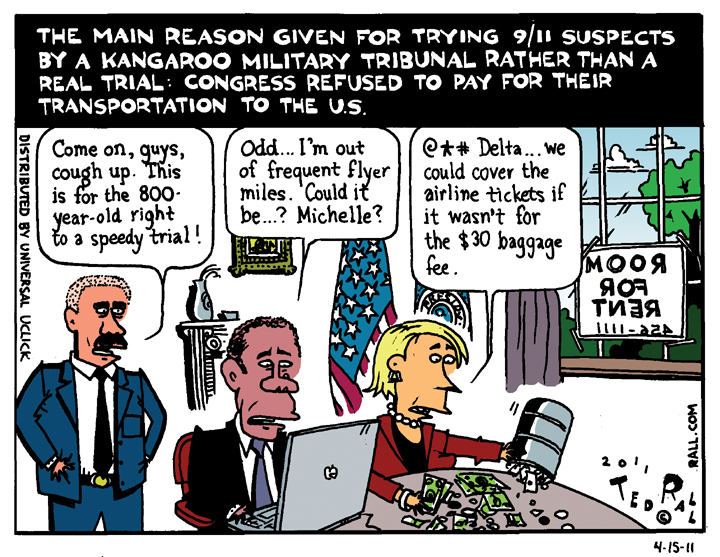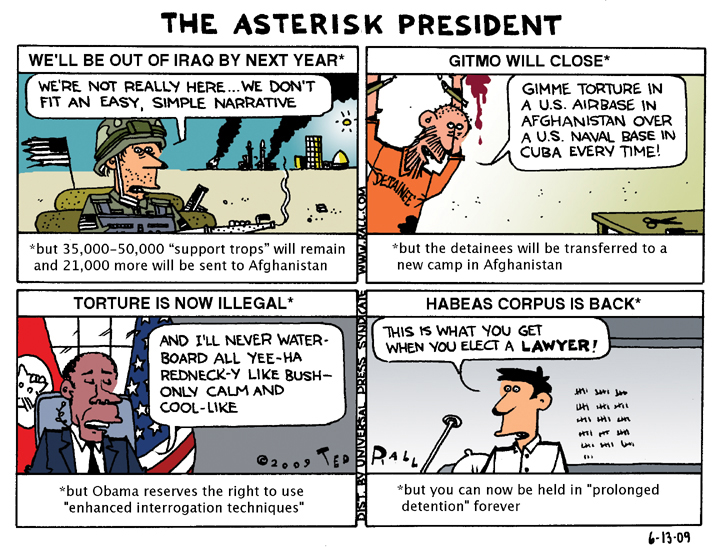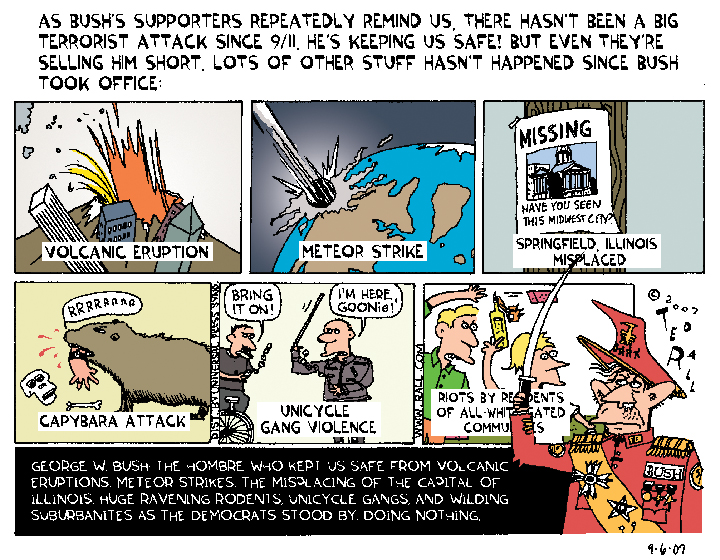Airing LIVE at 10 am Eastern time this morning, then Streaming 24-7 thereafter:
Guantánamo Bay concentration camp, the American human-rights disaster made infamous by the Bush Administration when it sent Muslim detainees to be tortured there out of reach from the law, is about to radically expand. Donald Trump has ordered the camp to prepare for the arrival of 30,000 migrants, many of whom have never been charged with a crime.
On “The TMI Show,” co-hosts Manila Chan and Ted Rall discuss the morality, practicality and political implications of Trump’s latest move in his war against illegal immigrants.

 Parents teach their children: you make a mess, you clean it up.
Parents teach their children: you make a mess, you clean it up. The stock response to President Donald Trump’s suggestion that the general election might be delayed because voting during a pandemic would involve a record number of mail-in ballots, a format he argues is unreliable and susceptible to fraud, is that he doesn’t have that power.
The stock response to President Donald Trump’s suggestion that the general election might be delayed because voting during a pandemic would involve a record number of mail-in ballots, a format he argues is unreliable and susceptible to fraud, is that he doesn’t have that power.

